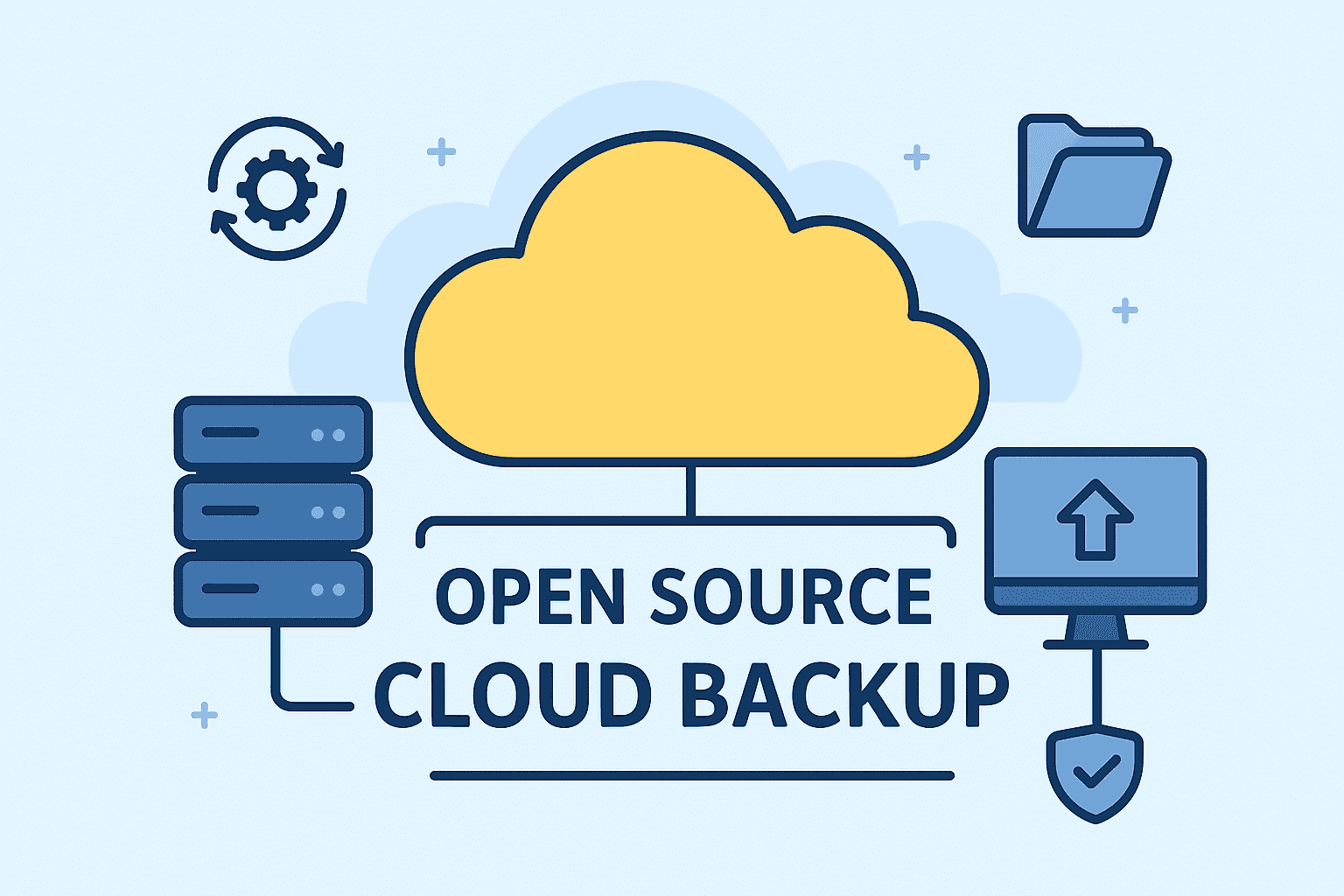VelocityBlog
Why Open Source Cloud Backups Deserve a Place in Your IT Strategy
Published:
Updated:
August 18, 2025
August 18, 2025

In a world increasingly driven by digital data, backup solutions are essential, not just as a safeguard, but as a strategic asset for your business. While many businesses turn to commercial cloud backup services, open source cloud backups are gaining momentum thanks to their flexibility, cost savings, and transparency.
Whether you’re an SMB, IT administrator, or developer looking for more control over your backup systems, open source solutions offer a compelling alternative to proprietary platforms.
What Are Open Source Cloud Backups?
Open source cloud backups feature backup tools that are freely available to use and modify, and are capable of storing data in cloud-based environments. These tools often support popular cloud storage backends like Velocity Host’s Cloud Backup, or monoliths such as Amazon S3, Google Cloud Storage.
Unlike closed systems, open source backup software gives you access to the source code, enabling greater control over how data is handled, encrypted, transmitted, and restored.
Benefits of Open Source Cloud Backup Solutions
- No Licensing Fees
One of the most immediate benefits of open source software is the absence of license costs. Businesses can install powerful backup systems without committing to expensive contracts or subscriptions for their client software.
- Transparency and Security
With open source backup tools, you can audit the code yourself or rely on a global community of developers who regularly review and test the software. This transparency:
- Minimises hidden vulnerabilities
- Enhances trust in encryption methods
- Helps maintain compliance with privacy and security standards
- Customisation and Flexibility
Open source solutions are often modular and highly configurable, allowing you to:
- Tailor backup frequency, retention, and destinations
- Integrate with existing infrastructure or DevOps workflows
- Automate backup processes through APIs or scripting
This is ideal for IT teams managing hybrid or complex environments.
- Avoid Vendor Lock-In
With open source, you’re not tied to a single provider or ecosystem. You can:
- Choose your preferred cloud storage provider, such as Velocity Host
- Easily migrate between systems
- Retain full control of your data format and structure
This flexibility is especially important as data grows and storage strategies evolve.
- Strong Community and Ecosystem
Popular open source backup tools have active user and developer communities, meaning:
- Continuous updates and improvements
- Shared plugins and integrations
- Free peer support via forums, GitHub, and documentation
Popular Open Source Cloud Backup Tools
Here are some of the most respected tools in the open source backup space:
Restic
- Simple, fast, and secure
- Built-in encryption and deduplication
- Supports multiple backends (S3, B2, Wasabi, etc.)
Borg Backup
- Focus on compression and deduplication of data
- Secure with authenticated data encryption
- Best for Linux/Unix environments
Duplicacy
- Designed for cloud backups
- Efficient deduplication (eliminating duplicate copies) of data across multiple machines
- Works across Windows, macOS, and Linux
Kopia
- Sleek, modern interface with CLI and GUI
- Encrypted and deduplicated
- Great for power users and developers
When Is Open Source the Right Choice for your business?
Open source cloud backups are ideal if you:
- Want full control over your data and backup process
- Need to integrate backups into custom workflows
- Are looking for budget-friendly or scalable solutions
- Prioritise security and transparency
However, they may not be ideal for businesses that require fully managed support, unless they are paired with a managed service provider or in-house backup expertise.
TL;DR
Open source cloud backups offer a refreshing alternative to commercial backup software: cost-effective, secure, and infinitely flexible. They put the power of backup into your hands, not behind a paywall or vendor restriction. Whether you’re protecting mission-critical workloads or simply building a more agile IT environment, open source cloud backup tools are worth a serious look.
Email Us...
Reading Time: 3 minutesFor small and medium business (SMB) owners, analytics should provide clarity and not confusion. You want to understand where your leads come from, what pages convert, and how customers move through your website. But many business owners find themselves overwhelmed by dashboards, reports, and data they never use. Two of…
Reading Time: 5 minutesIn an age where digital operations form the backbone of business success, the question isn’t whether a disaster will strike, but when. From cyber attacks and hardware failures to natural disasters and human error, the threats to business continuity are numerous and evolving daily. Disaster Recovery as a Service (DRaaS)…
Reading Time: 3 minutesProxmox Virtual Environment (Proxmox VE) is an open-source, Debian-based virtualisation platform that combines full virtual machines (KVM/QEMU) and lightweight Linux containers (LXC) behind a single web-based management interface. Proxmox bundles clustering, high-availability (HA), software-defined storage options (including Ceph), networking and built-in backup tooling, making it a full stack that’s attractive…
Reading Time: 5 minutesIn the current business climate, where flexibility and efficiency matter more than ever, many Australian companies are re-evaluating how they deliver desktops to their staff. The question isn’t just “which hardware shall I buy?” but “what’s the best model for delivering desktops with cost, scalability, and security in mind?” This…
Reading Time: 4 minutesIn today’s business climate, with hybrid working, distributed teams and the constant pressure to stay lean, technology needs to deliver both flexibility and simplicity. For small and medium-sized enterprises (SMEs) in Australia, one cloud solution increasingly gaining traction is Desktop as a Service (DaaS). Many business owners ask questions such…

Gerardo Altman, Director of Problem Solving
With over 25 years’ experience in the IT industry, Gerardo Altman is a key solutions architect and MD of Velocity Host, with a love for Tetris and complex puzzles of every nature you'll find me hard at work doing what I do best – finding solutions.